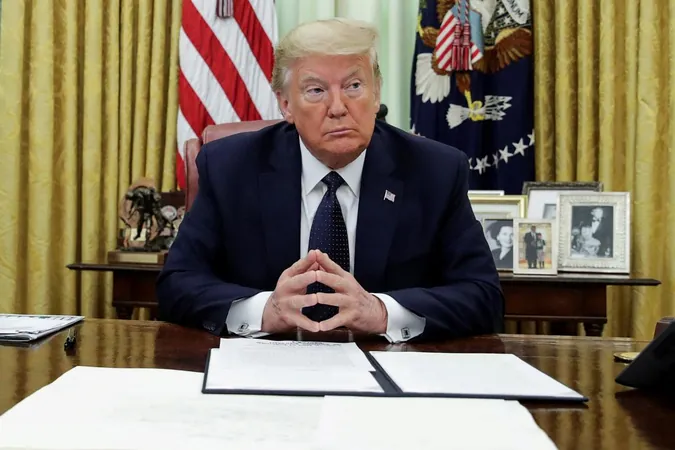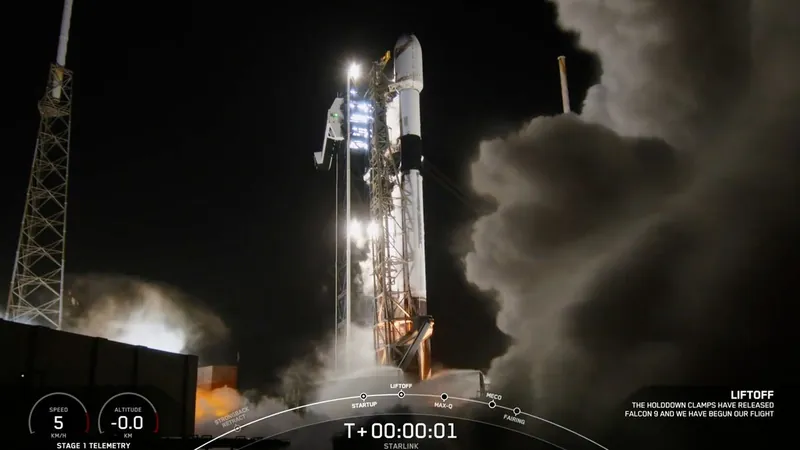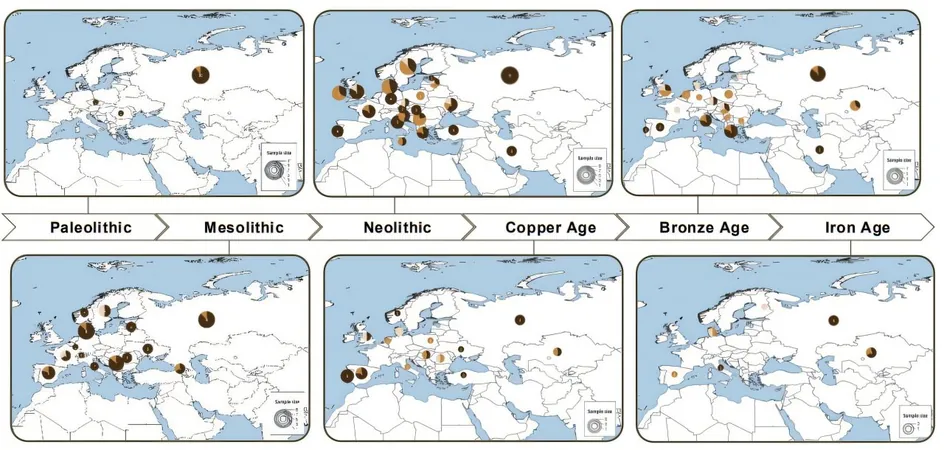
Court Blocks Trump's Federal Aid Freeze, Chaos Unleashed on Essential Programs
2025-01-28
Author: Siti
Court Blocks Trump's Federal Aid Freeze
In a dramatic turn of events, U.S. District Judge Loren AliKhan issued a temporary injunction on January 28, stopping President Donald Trump’s sweeping directive to freeze hundreds of billions of dollars in federal aid just minutes before it was set to take effect. This high-stakes interruption sent shockwaves through the government and raised urgent concerns about the potential disruption of vital service programs benefitting tens of millions of Americans.
Impact of the Proposed Freeze
The proposed freeze would have impacted thousands of federal grant initiatives critical to various sectors, including healthcare, education, and infrastructure. Advocacy groups voiced strong opposition, arguing that the freeze would result in devastating outcomes for community health programs, road construction, and even payments to pre-school educators. The court is set to reassess this contentious issue on February 3.
Broader Attempts by the Trump Administration
This directive was part of a broader attempt by the Trump administration to implement substantial changes within the federal government, a move that has already included halting foreign aid, freezing new hiring, and dismantling diversity programs across numerous agencies. Additionally, the administration sought buyouts for federal employees in its bid to streamline operations.
Political Reactions
Democrats were quick to criticize the funding freeze, branding it an unconstitutional overreach into Congress’s authority over federal spending and voicing concerns that it would disrupt essential payments to healthcare providers. Meanwhile, Republicans defended the order, framing it as a commitment to curbing government expenditures, specifically the monumental $6.75 trillion budget.
Concerns Over Healthcare Payments
Despite reassurances from the Trump administration that crucial programs would remain unaffected, Senator Ron Wyden reported that Medicaid payments had stalled across all 50 states, putting millions of low-income Americans at risk. White House communications failed to convince healthcare officials, who insisted that the interruption could lead to extensive long-term damage to healthcare providers throughout the nation.
Origin of the Directive
The controversial order stemmed from a memo issued by the White House budget office, aiming to freeze federal grants and loans until they could be aligned with the president's priorities, which notably includes the cessation of diversity and equity initiatives.
Importance of Federal Assistance Programs
Federal assistance programs are integral to many American lives, distributing trillions of dollars for education, healthcare, poverty alleviation, and infrastructure development. Some Republican-leaning states, which depend heavily on federal funding, would also feel the brunt of these cuts. The initial memo included provisions for foreign aid and support for non-governmental organizations, redirecting over 2,600 individual grant assessments across 55 agencies.
Exemptions and Further Concerns
While the White House has publicly stated that critical programs like Social Security and Medicare would remain untouched, reports emerged suggesting that several major assistance programs could face setbacks, including funds for farmers, small businesses, and the Head Start preschool initiative. Senator Chris Murphy expressed concern after his state experienced a shutdown in the Head Start reimbursement system, jeopardizing staff compensation at teaching centers.
Implications for Disaster Relief
Notably, disaster relief aid for areas recently affected by natural calamities was not explicitly exempted from the freeze, raising concerns for victims in regions like Los Angeles and western North Carolina, where Trump had previously promised federal assistance.
Trump's Approval Ratings
As the chaos unfolded, it topped off a tumultuous month for Trump, whose approval ratings dipped to 45%, per a poll released on January 28. Many constituents expressed dissatisfaction with various administration initiatives, including the controversial measures to rename the Gulf of Mexico and deny citizenship to children of non-citizen parents.
Justice Department Response
The repercussions of the freeze are mirrored in the judicial system’s response, with the Justice Department preparing to pause approximately $4 billion in essential funding, including aid for crucial child services. Allies of Trump have long advocated for aggressive budget slashes, yet the implications of such freezes threaten to reverberate across sectors and communities.
Democrats' Condemnation
Democratic leaders have framed this freeze as not only unlawful but as a grievous threat to American families. Senate Democratic Leader Chuck Schumer condemned the decision, asserting, "This decision is lawless, destructive, cruel; it’s American families that are going to suffer most."
Separation of Powers at Stake
As contingencies of this unfolding crisis remain uncertain, the separation of powers continues to be tested, with arguments swirling over the President's authority to withhold funds without congressional approval. The impending court ruling on February 3 will likely elucidate the fate of federal funding as both parties brace for the implications of this unprecedented conflict in governance.




 Brasil (PT)
Brasil (PT)
 Canada (EN)
Canada (EN)
 Chile (ES)
Chile (ES)
 Česko (CS)
Česko (CS)
 대한민국 (KO)
대한민국 (KO)
 España (ES)
España (ES)
 France (FR)
France (FR)
 Hong Kong (EN)
Hong Kong (EN)
 Italia (IT)
Italia (IT)
 日本 (JA)
日本 (JA)
 Magyarország (HU)
Magyarország (HU)
 Norge (NO)
Norge (NO)
 Polska (PL)
Polska (PL)
 Schweiz (DE)
Schweiz (DE)
 Singapore (EN)
Singapore (EN)
 Sverige (SV)
Sverige (SV)
 Suomi (FI)
Suomi (FI)
 Türkiye (TR)
Türkiye (TR)